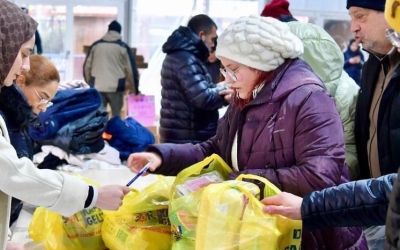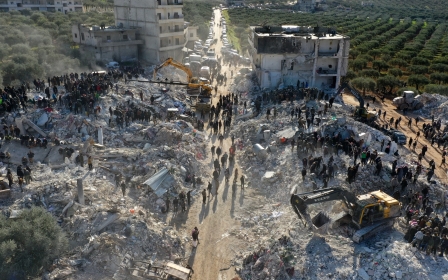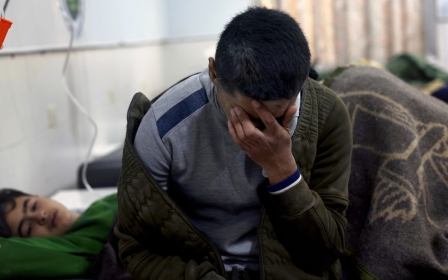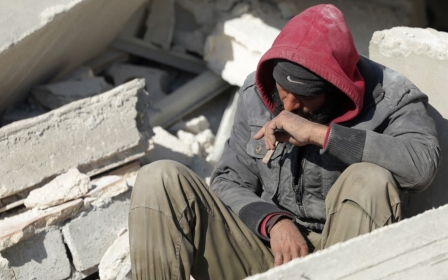Turkey-Syria earthquake: Race against clock as critical 72-hour window passes
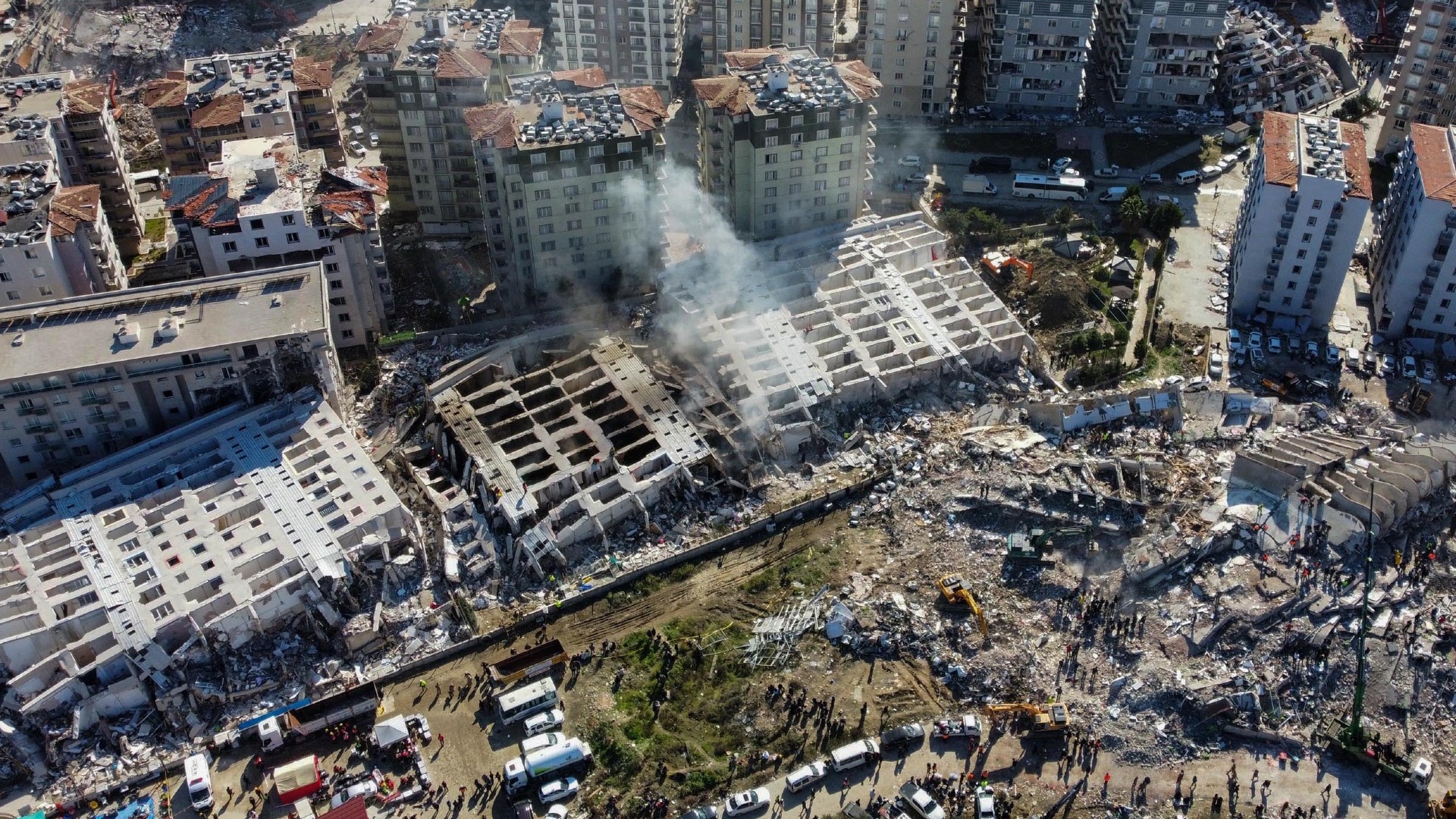
Rescue efforts have reached a critical stage three days after Monday’s powerful earthquakes which devastated southern Turkey and northern Syria.
More than 17,000 people have died after the 7.8-magnitude quake struck the southeastern Turkish city of Gaziantep on Monday, followed by a 7.5-magnitude earthquake in the Kahramanmaras province shortly after.
More than 90 percent of survivors under rubble are found in the first 72 hours, according to experts. With that three-day window closing early Thursday morning, the likelihood of rescuing people falls with every passing hour.
"We are at a critical point... Time is running out, hundreds of families are still stuck under the rubble. Every second means saving a life," the White Helmets, the Syrian rescue service operating in rebel-held areas of northwest Syria, said on Thursday.
The death toll has risen to 14,014 in Turkey, President Tayyip Erdogan told reporters on Thursday morning.
New MEE newsletter: Jerusalem Dispatch
Sign up to get the latest insights and analysis on Israel-Palestine, alongside Turkey Unpacked and other MEE newsletters
At least 3,150 people have died in neighbouring Syria, bringing the total death toll to 17,164.
As the clock ticks, the cold weather conditions in the region are working against rescue efforts.
With temperatures in single digits during the day and dropping to below zero at night, the situation for survivors is bleak.
Emergency services are desperately seeking to get medical attention to as many people as possible under collapsed buildings before they succumb to hypothermia, their bodies fail or they bleed out.
Aid efforts face challenges
There has been an outpouring of aid and volunteering efforts, domestically within Turkey and Syria, and internationally too.
In Turkey, volunteers have mobilised in all regions to do whatever they can to help those most affected.
“My people are incredibly resourceful and resilient. My eyes fill with tears in these moments, seeing people coming together and doing this kind of aid work,” Saliha Gencay, 46, a teacher from the Black Sea province of Sakarya told Middle East Eye.
Many Turks were left outraged after access to Twitter was restricted for 12 hours in the country, a key tool utilised to coordinate rescue efforts. Twitter chief Elon Musk said on Wednesday night that he was informed by the Turkish government that the service would be restored.
The site was accessible again by about 5 am (0200 GMT) on Thursday.
In northwest Syria, aid efforts have faced major difficulties.
MEE reported on Wednesday that United Nations aid was not reaching opposition-held territory because Turkish border guards at Bab al-Hawa - the only aid corridor between Turkey and Syria - had been personally impacted by the earthquake.
Officials and aid workers told MEE that customs officials were among those killed or trapped under the rubble in the Hatay province of southeast Turkey.
To address the disruption, Ankara said it would open two more border gates to Syria to help the flow of humanitarian aid.
In government-held Syrian territory, the European Union said it was ready to work with Syrian President Bashar al-Assad’s administration on humanitarian aid and rescue efforts.
The EU asked member states to “respond favourably” to an official plea from Damascus, signalling a potential shift in dealings with Assad.
The bloc has imposed sanctions on Syria’s government since 2011, after its brutal crackdown on protesters which spiralled into a civil war.
Elsewhere, the EU announced a donor conference for both Syria and Turkey to help raise funds for the relief efforts.
Middle East Eye delivers independent and unrivalled coverage and analysis of the Middle East, North Africa and beyond. To learn more about republishing this content and the associated fees, please fill out this form. More about MEE can be found here.


